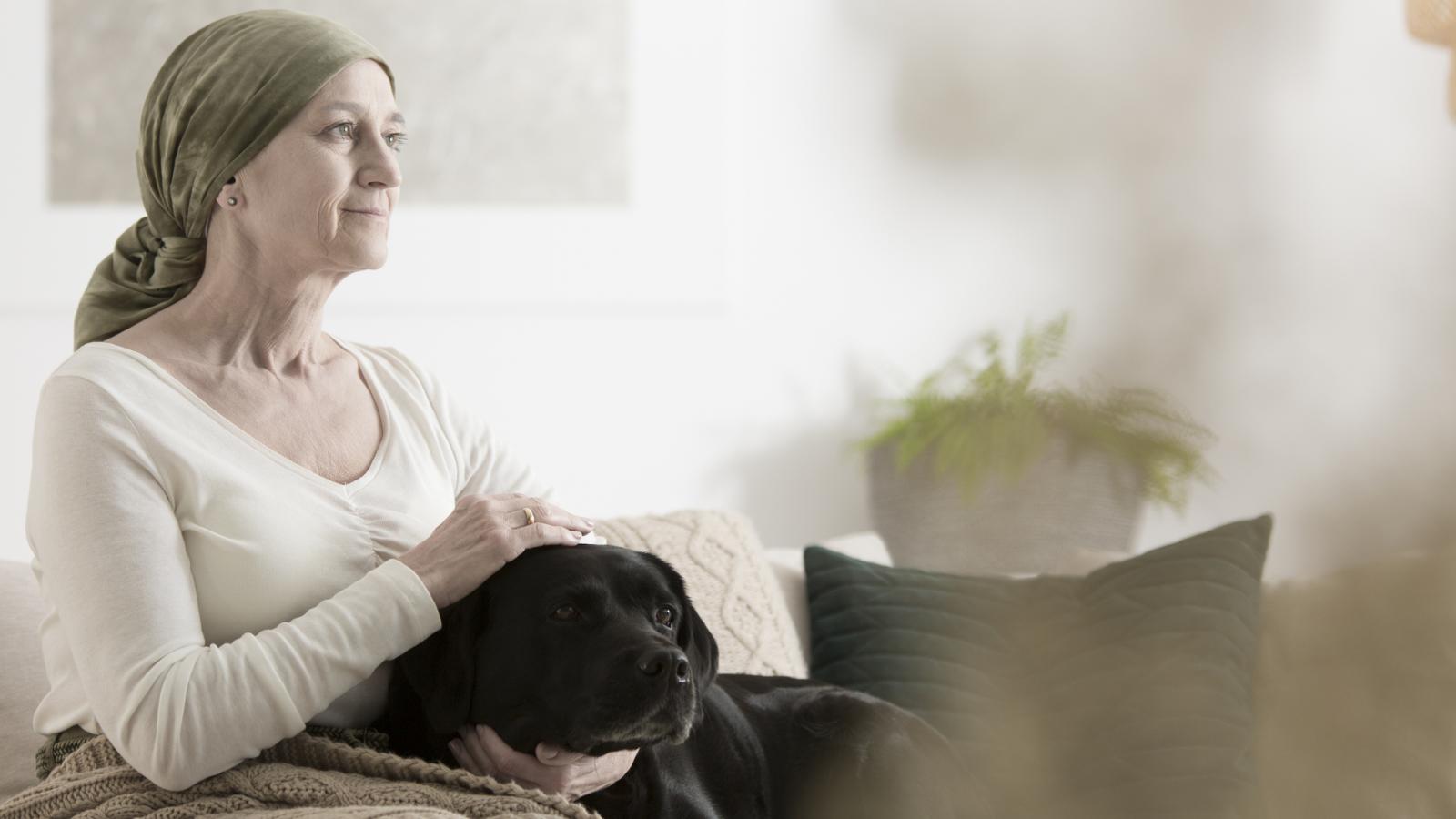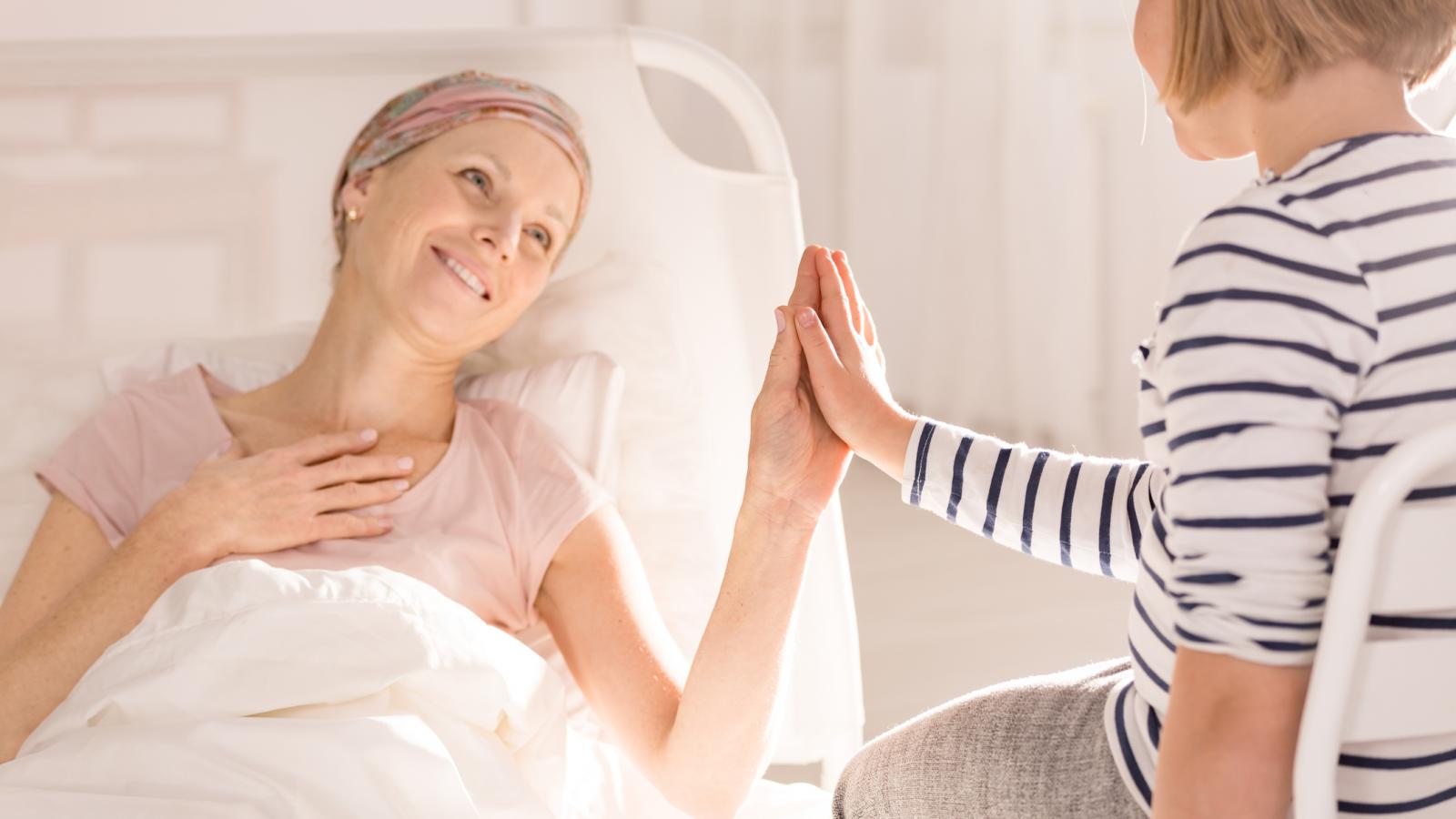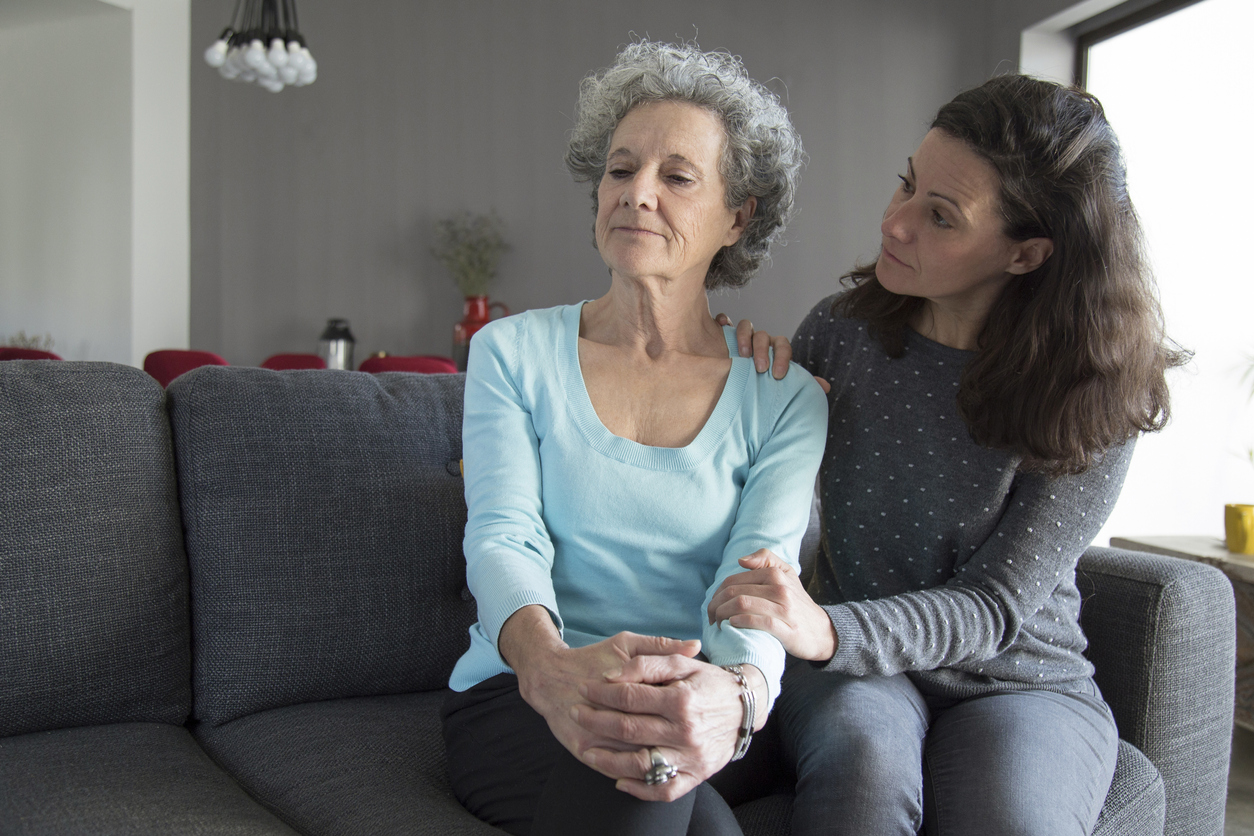Palliative care frequently asked questions

This page answers a list of frequently asked questions about palliative care.
Our father is coming home from hospital. What support is available to help us care for him at home?
When your father is sent home from hospital, his care is taken over by a number of different health professionals in the community.
His GP (family doctor) will now be a very important part of the team that will care for your father and will be medically responsible for his care at home. The doctor will receive a discharge letter from the hospital with your father’s information. Remember to ask them about the out-of-hours service they provide.
The specialist palliative care service will phone your father’s next of kin and arrange a time for their doctor to visit your father. They will assess your father’s medication and how the family are coping. They will liaise with the GP if any changes need to be made.
The public health nurse (PHN) will make an assessment of your father’s needs and discuss these with you. The PHN may suggest the HSE's Home Support service, which can help with everyday tasks such as getting in and out of bed and getting dressed and undressed.
They will discuss with you what kind of equipment can help to make your father more comfortable and how to get this equipment. Or indeed anything that can help to improve his quality of life. The PHN is based in the local health centre and can be contacted by phone if necessary.
The Irish Cancer Society's Night Nursing service provides end-of-life care for cancer patients in their own homes. This service allows patients to remain at home for the last days of their lives.
Your night nurse will work with you to give your father the highest standard of nursing care and ensure his comfort and dignity. They can also give practical and emotional support and reassurance to you and your family.
Access to the service is through your specialist palliative care nurse, your public health nurse or your GP. Read more about Night Nursing.
Unfortunately there is no 24-hour nursing care for your father at home. Most of the care will need to be provided by family. This can be very difficult to do and you may feel overwhelmed or nervous at the amount of care he will need. It may help to meet as a family with your father’s medical team in the hospital to make sure you know exactly what is involved.
The Irish Cancer Society also has a booklet called A time to care: Caring for someone seriously ill at home. You can download a copy or call the Support Line on 1800 200 700 to ask for a free copy.
What does the public health nurse do?
The public health nurse (PHN) provides basic nursing care as well as advice and assistance to their patients.
They liaise with the GP, hospital and hospice to ensure that patients’ needs are met. They are based in your local healthcare centre and work with GPs (family doctors) in the community.
The PHN can call to see someone in their home and may be able to provide any necessary equipment. This can include beds, urinals or a toilet on wheels (commode).
Will the palliative care nurse help with my mother’s personal care?
The palliative care nurse’s role is to manage any symptoms that your mother is experiencing due to her cancer. For example, pain or nausea.
Personal care may be provided by your mother's loved ones or private carers. If your mother is over the age of 65, she is eligible for the HSE's Home Support service. This free service provides support with everyday tasks such as:
- Getting in and out of bed
- Getting dressed and undressed
- Personal care, such as showering
My husband is coming home from hospital because he is not receiving any more treatment for his cancer. I was told that the palliative care team will be calling to see him. When will they call and how often?
The palliative care team will receive a referral from your husband’s doctor in the hospital. When they call will depend on this referral and on how well your husband is. In general it can take up to two weeks from the time of referral for the palliative care team to first visit a patient.
However, if your husband’s condition weakens in the meantime please ask your GP (family doctor) to contact the specialist palliative care team.
The frequency of visits will depend on your husband’s symptoms and his needs. They can call every day if necessary or it may be once a week.
What do I do if my husband gets unwell and the palliative care team are not calling for another week?
Sometimes a symptom may develop that wasn’t there before or a symptom such as pain can get worse.
If this happens, contact your GP (family doctor) or phone the palliative care nurse who has been seeing your husband.
My father is coming home next week but he is weak and breathless. His cancer is advanced and I am worried that he may not be able to get up the stairs. What should we do?
Breathlessness is a very common symptom of advanced cancer. There are a number of reasons for it. Our section on breathlessness goes through these reasons and gives some helpful tips on managing the condition.
It would be helpful to talk to the physiotherapist and to the palliative care nurse about your father’s breathlessness before he leaves hospital. They will offer practical advice which might help. Medication for anxiety or very low doses of morphine can help with breathlessness.
You may need to consider a bed downstairs, if this is possible. It may also be used as a day bed to avoid the effort of going upstairs for a rest. Discuss your options with your father’s public health nurse and ask for their advice on other aids and equipment that might help your dad such, as a toilet on wheels, a urinal or a special mattress.
My husband has advanced cancer and we are struggling financially ever since he had to give up work. What support is available to us?
A diagnosis of cancer can sometimes bring with it the added burden of financial worries. You may not be able to work for a time, you may have extra expenses, such as heating and childcare, and you may have to pay for some of your cancer treatment.
The Irish Cancer Society can offer practical and financial advice for people living with cancer. This includes:
- Understanding your welfare entitlements
- Advice on accessing extra childcare
Call our Support Line on 1800 200 700, email supportline@irishcancer.ie or visit a Daffodil Centre for advice.
An emergency medical card can be issued if someone has a terminal illness and has been told they have 24 months or less to live. An emergency medical card will also be issued to anyone receiving end-of-life treatment. For more details, speak to your husband’s medical social worker or local health centre.

How do we introduce the palliative care team when my father does not know how ill he really is?
Often the suggestion to involve the palliative care team will come from the patient’s medical team in the hospital or from their GP (family doctor).
In some cases, but not all, the patient already suspects that their cancer treatment has not been successful. If you are unsure how to approach the subject, discuss your concerns with the palliative care nurse in the hospital, the oncology liaison nurse or with your father’s GP.
You can also call the Support Line on 1800 200 700 and speak in confidence with a cancer nurse specialist.
Will my sister lose hope if we involve the palliative care team?
Very often when the palliative care team is involved, both the patient and their family feel more secure and supported. And your sister will have a better quality of life because her symptoms will be managed so well. She will also have the opportunity to express her fears and anxieties to the palliative care team.
The expertise, care and support of the palliative care team will help to ensure that your sister will be as comfortable as possible during this stage of her illness.
We don’t feel that we need the palliative care team yet. My mother is very well and I do not want her to lose hope or give up yet. Can we introduce them later?
The palliative care team is a very valuable resource to help you and your mother while she is at home. But if you feel that the team is not yet needed, that is okay.
You might want to ensure that the referral form for your mother is sent to the palliative care team as soon as she comes home from hospital. This can also be arranged by her medical team in the hospital. This means that there will be no delay when the need arises.
The doctors have no more treatment to give to my father and they want to refer him to the palliative care team. Does that mean that he is terminal?
If your father is referred to the palliative care team, this does not necessarily mean that he is in the terminal stages of his cancer.
The terminal stage, now known as end of life, involves the last few days or weeks when it becomes clear that your father’s health is getting progressively worse.
This may not be the case for some length of time and the palliative care team will be able to let you know when it is happening. Generally you will notice that your father is getting weaker, spending more time in bed, sleeping more, and has no appetite. He may also be confused at times.
My husband’s cancer is very advanced. I am anxious that he gets every opportunity to talk about his worries. What advice can you give me?
Being a good listener and letting your husband talk openly is the best form of communication. You could ask him if he has any concerns or wishes that he would like to talk about. This can be difficult to do but it may be the opening that your husband was waiting for. For example, you might want to ask questions such as ‘Is there anything that you would like to do before you get too ill?’, ‘Would you like to talk to a doctor or nurse about any aspect of your care?’, ‘Would you like to speak to someone about sorting out your affairs?’ or ‘What funeral arrangements would you like?’
These are difficult conversations to have. Discuss your concerns with the palliative care team. Our booklet, Caring for someone with cancer, has lots of information about the emotional care of someone with cancer. It also has information about how to talk to a loved one who has cancer. For a free copy, call the Support Line on 1800 200 700 or download a copy from our website, www.cancer.ie
The Irish Cancer Society also provides free local counselling services across the country. Find your local service.
My father asked my brother if he was dying. My brother did not know what to say. Is there any way to answer this without upsetting my father?
In this situation, it is very hard to say an outright ‘yes’ to such a question.
In fact it is never easy to talk about death. However, it is also important not to tell an ‘untruth’. You may find it easier to respond to your father by asking him a question instead.
For example, ‘Why did you ask that?’ or ‘Do you think you are dying?’ This can give your father an opportunity to express his worries.
My wife has advanced cancer and we are planning to bring her home to take care of her. We have three children. How will seeing their mother so sick affect them?
Caring for your wife at home when there are young children involved can be very worrying for you. Your homecare nurse or GP (family doctor) will be able to give you advice on how to involve your children.
In general, how much you tell your children about their mother’s illness will depend on their age. Very young children will not understand illness and a very simple explanation is all they need. Older children will understand more and will need to be told more.
An open honest approach is usually the best way for all children. Even very young children can sense that something is wrong. So don’t keep them in the dark. Reassure them and talk to them in their own language.
Our booklet Talking to Children about Cancer: A Guide for Parents has some helpful tips. If you would like a copy, call the Support Line on 1800 200 700 or download it from our 'Talking about your cancer' section here.
The UK website Winston’s Wish also has a very good section on supporting children when a family member has a serious illness.

I remember my grandfather being in pain before he died. Will this be the same for my sister?
The palliative care team know in great detail the different types and causes of pain. Whether it is bone pain, pain from pressure of the tumour or nerve pain, there are many different types of medication that will help.
Your sister’s pain will be assessed regularly and changes to her medication will be made if necessary. Painkillers can be given as tablets, a liquid, an injection, a nasal spray, a stick to suck or a patch stuck to the skin.
As a person gets weaker and is unable to swallow, these medications can be given through a little pump called a syringe driver. Read more about pain.
What is the ‘pump’?
A pump is a small portable machine called a syringe driver. It delivers a continuous dose of medication through a small needle or tube that is inserted just under the skin of your chest, tummy or arm. It can also be called a subcut pump.
A pump or syringe driver may be used for different reasons. For example, if a person is feeling sick or vomiting and unable to swallow tablets, medication can be given through the pump. A person may also have difficulty swallowing tablets because their general condition is deteriorating and they are getting weaker and sleepy.
The pump or syringe driver will ensure that their pain is still being managed. Anti-sickness, anti-anxiety and several other medicines can also be given this way. The nurse will change the syringe driver every day or when needed.
I have a fear of morphine. Do I need to take it?
Morphine is a painkiller. It is also known as an analgesic or an opioid. Unfortunately, many people with advanced cancer will have some pain. Morphine is a strong opioid and is used to treat moderate to severe pain.
It is used very regularly in cancer patients. Other opioids include oxycodone, hydromorphone and fentanyl.
Many people worry about increasing doses of strong painkillers such as morphine. It is important to remember that the right dose of morphine is the dose that gets rid of the pain. This is why the dose is gradually increased as necessary. A person can be ‘up and about’ and living normally while on quite a high dose of morphine.
Remember that pain is an individual thing and an opioid may be needed to manage it correctly. Morphine is a very safe drug when given under supervision by a palliative care team.
What about the side-effects of painkillers?
The side-effects of all painkillers include drowsiness, sickness and constipation. Drowsiness usually wears off after a few days of starting the medication and the person can be alert and pain-free. A person may become drowsy and sleepy as their disease progresses. But this is because of the person’s cancer, not their pain medication.
There is a wide range of anti-sickness medication available if you feel sick as a result of your pain medication. And like drowsiness, this side-effect often goes away within a few days of starting the medication.
Constipation is a very common side-effect of opioids and everyone taking strong painkillers needs to take laxatives regularly. We have more information on managing pain.
I am worried because my mother has lost a lot of weight and she has no appetite. What can I do to help her?
It can be very difficult to prevent your mum’s weight loss and to improve her appetite. As her cancer advances, her metabolism slows down and her body no longer needs food as it cannot digest it or absorb the nutrients from it.
At this stage it is okay not to force your mum to eat and to just give her a little of whatever she would like. See pages 20-21 of our booklet A Time to Care: Caring for someone seriously ill at home for helpful tips on looking after someone with a poor appetite. You might also find our booklet Diet and Cancer helpful. These booklets can be downloaded from our website, www.cancer.ie. Or you can order free copies by calling our Support Line on 1800 200 700 or emailing supportline@irishcancer.ie
For more information
Phone
1800 200 700

